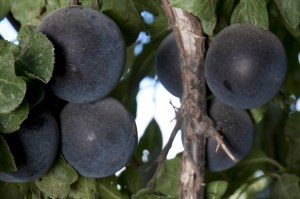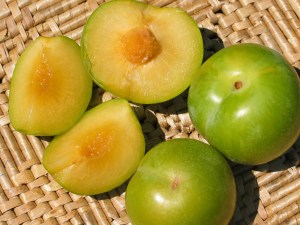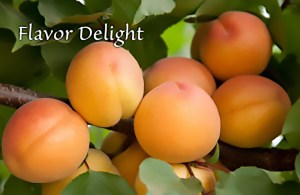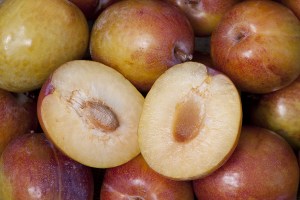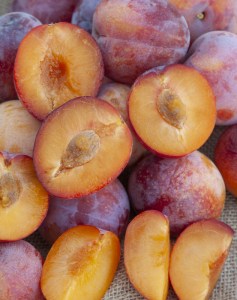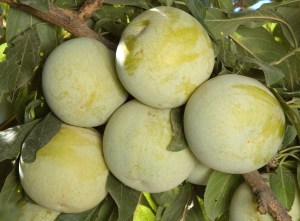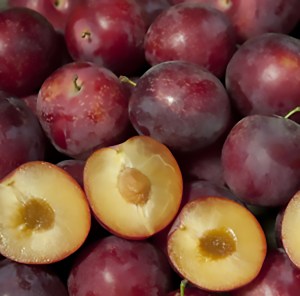Pluots Plumcots Pluerries Etc
Bare Root Pluots, Plumcots, Pluerries, Etc.
 Interspecific hybrids are an entirely new fruit type. They are complex hybrids of plums, apricots, cherries, peaches and nectarines. They will delight your taste buds with their rich, intense flavor. The plum/apricot crosses have a higher sugar content than either plums or apricots, without the tartness of some plums, which gives them an incredible sweetness. The different varieties all have flavors, aromas and textures that are sensationally distinctive and unique within the fruit world.
Interspecific hybrids are an entirely new fruit type. They are complex hybrids of plums, apricots, cherries, peaches and nectarines. They will delight your taste buds with their rich, intense flavor. The plum/apricot crosses have a higher sugar content than either plums or apricots, without the tartness of some plums, which gives them an incredible sweetness. The different varieties all have flavors, aromas and textures that are sensationally distinctive and unique within the fruit world.
Pluots and plumcots have the same cultural requirements as plums; pruning, fertilizing, disease and insect control will be similar. Interspecifics are not recommended for areas that get extremely cold or that are subject to late frosts. If you live in such an area and want to try anyway, Flavor King, Flavor Grenade and Dapple Dandy Pluots are your best choices.
More About Pluots And Plumcots
New varieties are being developed almost every year. Some are being offered commercially although most fruit at the supermarket is of poor quality, probably due to premature harvesting. It’s possible to have a very long season of pluots – Flavor Supreme ripens in mid June and Flavor Finale will stay on the tree into October! For those of you with limited garden space, we have the popular 4N1 Pluot. This grafted tree includes Flavor Supreme, Flavor King, Flavor Queen and Dapple Dandy – four delicious varieties all on one tree and they pollenize each other. The same is true of the 4N1 Zee Sweet Nuggets tree which has Emerald Drop, Flavor Grenade, Geo Pride and Splash. All of the pluots require a pollenizer, either another pluot or a Japanese plum such as Santa Rosa or Burgundy.
Pluot Rootstocks
CITATION (Cit.)
Peaches and nectarines dwarfed to 8-14 ft.; apricots and plums dwarfed to 12-18 ft. Very tolerant of wet soil; not drought tolerant (induces early dormancy in dry soil) so needs very regular water in hot climates. A top dressing of mulch can help maintain soil moisture. Resists root knot nematodes. Induces heavy bearing at a young age. Very winter hardy. Strong and well anchored. Pat. No. 5112 (Zaiger).
MARIANNA 26-24 (Mari.)
Standard rootstock for apricots, plums, prunes, most almonds. Mature trees comparatively small, 15-20 ft. if unpruned; can be kept smaller with summer pruning. Shallow root system, much more tolerant of wet soils than Lovell or Nemaguard; is not tolerant of hot soils. Has tendency to sucker. Resistant to oak root fungus, root knot nematodes, root rot.
MYROBALAN 29C (Myro.)
Excellent, all-around rootstock for apricots, plums, almonds. Shallow but vigorous root system tolerates wet soils and is widely adapted; is more deeply rooted than Marianna. Resistant to root knot nematodes and has some resistance to oak root fungus. Unpruned tree height of standard varieties 15-25 ft., but can control size further with summer pruning. Winter hardy in Michigan.

